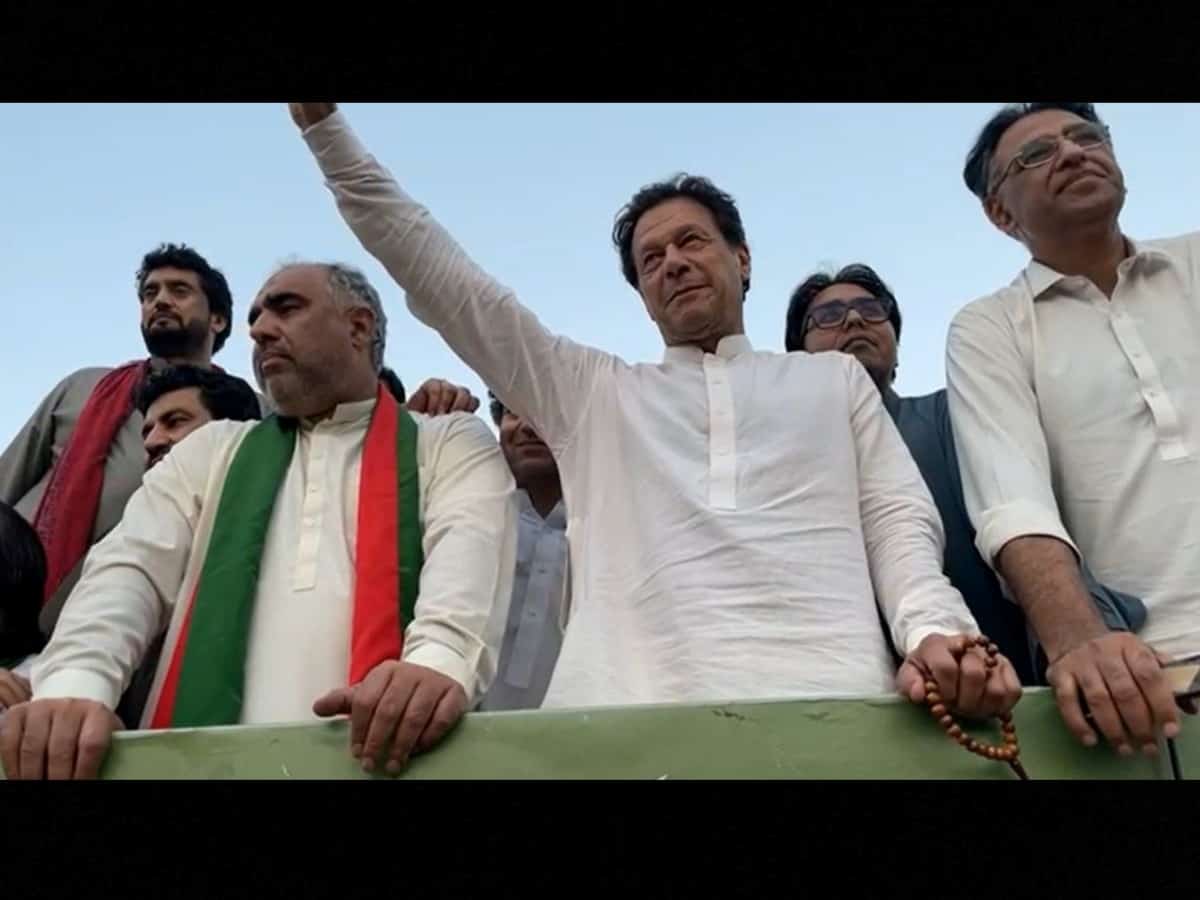
At his Gujranwala rally in the small hours of Wednesday, former Prime Minister Imran Khan, currently leading a “freedom march” to the Pakistani capital, Islamabad, hinted in very clear terms that Pakistan could face another split on the pattern of what happened 51 years ago when East Pakistan was lost and a new nation Bangladesh emerged on the global map.
Imran Khan who has emerged as the most popular leader in Pakistan following his ouster from the premiership in April this year – he has won majority of by polls and attracted huge crowds to his rallies, has brought back the memories of 1970 when Awami League, led by Mujibur Rehman, was cheated in elections, which led to the split of the country. He apprehended that similar conditions were being imposed on the country and these could have similar consequences.
Pakistan media quoted Imran having stated, “Everyone knows Mujibur Rehman and his party won the general elections in 1970. Instead of handing over power, a cleaver politician set Awami League and the army on a collision course….. at present, Nawaz Sharif and Asif Zardari are playing a similar sole as they are trying to conspire with the establishment to block the PTI’s journey back to power.”
To Pakistan watchers, it may appear that Imran is trying to scare the people that if he is not voted back to power in the general elections, which he is asking to be held at the earliest, the nation could face another division. Imran, it appears, has made these substantially explosive remarks, which are embedded as a lasting nightmare in the history of the country founded on the basis of religion. East Pakistan, now Bangladesh, had become part of Pakistan because of the religious affinity but the very theory collapsed when democracy was trampled. In 1971 and Pakistan lost one-half of its territory forever.
The split of the country was more humiliating in wider terms than the loss of the territory which became another nation – Pakistan that always boasted on the bravery of its armed forces witnessed the surrender of more than 90,000 of its troops to India, and it had to beg to India for the release of 93,000 prisoners of war.
Much had changed in Jammu and Kashmir after Pakistan’s defeat and the split of the country, the people in Kashmir realized that Pakistan had failed to protect its people, democracy, and Muslim unity. That made a great psychological impact and triggered political developments of far reaching consequences.
The Plebiscite Front formed by Sheikh Mohammad Abdullah’s supporters, asking for the referendum in Kashmir as per the UN resolutions of 1948-49 to determine their choice whether they wanted to be part of Pakistan or India, developed second thoughts. It led to the process of Sheikh-Indira Accord, which resulted in disbanding of the Plebiscite Front and revival of the National Conference. Sheikh Abdullah scaled down his own title from that of Prime Minister, which he had acquired in 1948 until August 1953, to that of Chief Minister.
Now with Imran Khan hinting at Bangladesh’s moment revisiting Pakistan yet again after more than half-a-century, is coinciding with the times when Kashmiri leadership is demanding the rollback of the abrogation of Article 370. That, in. realistic terms implies Pakistan which backed their demand, is yet again walking the 1971 moment, thus the whole exercise for pre-Article 370 abrogation autonomy may become as redundant as the Plebiscite Front’s fate in 1970s.



